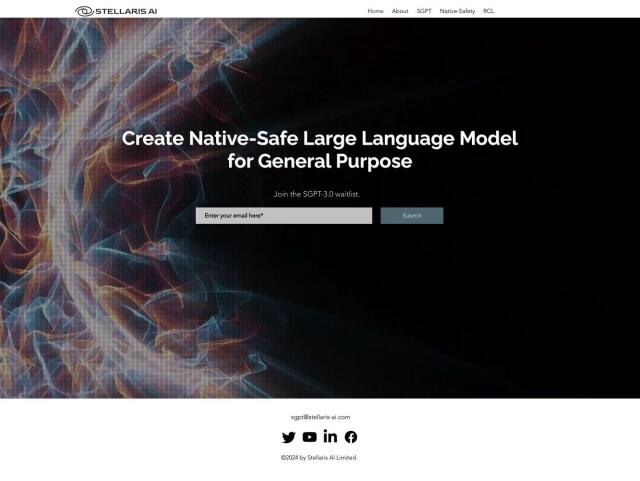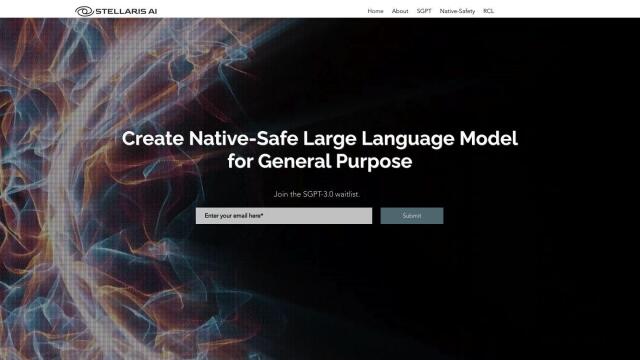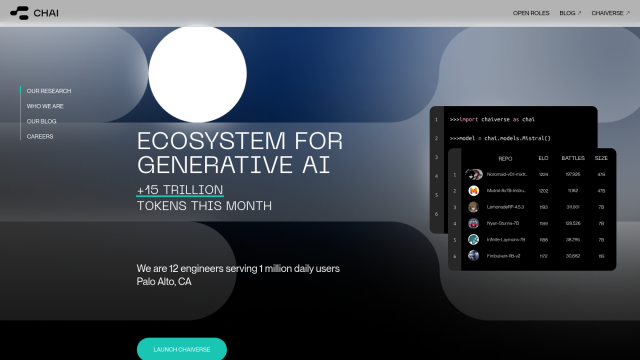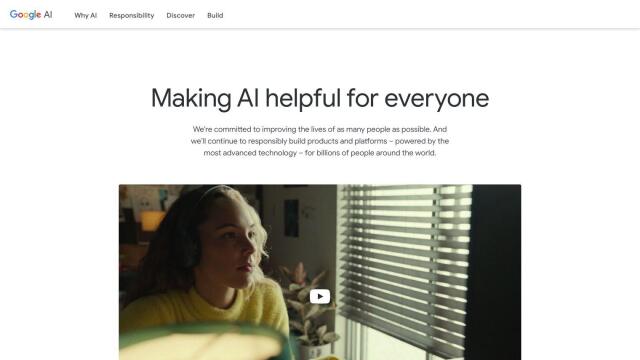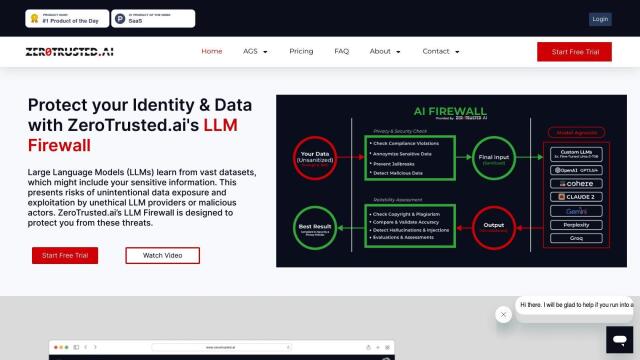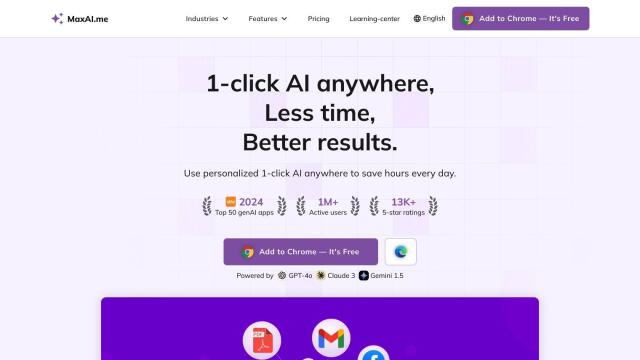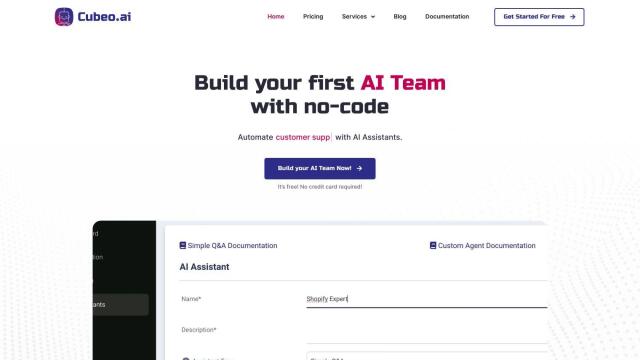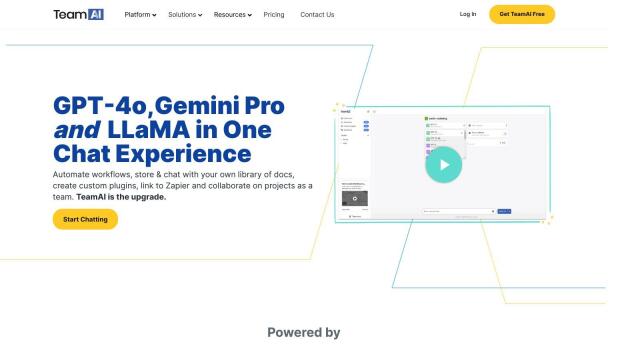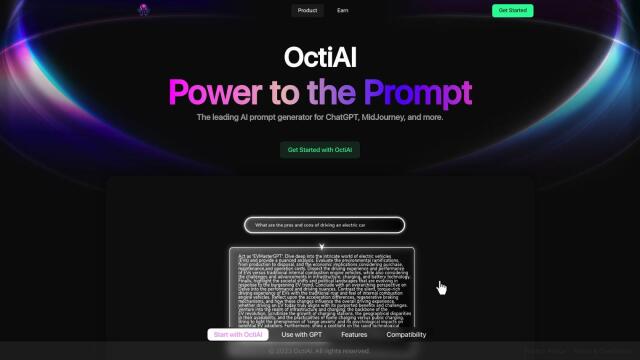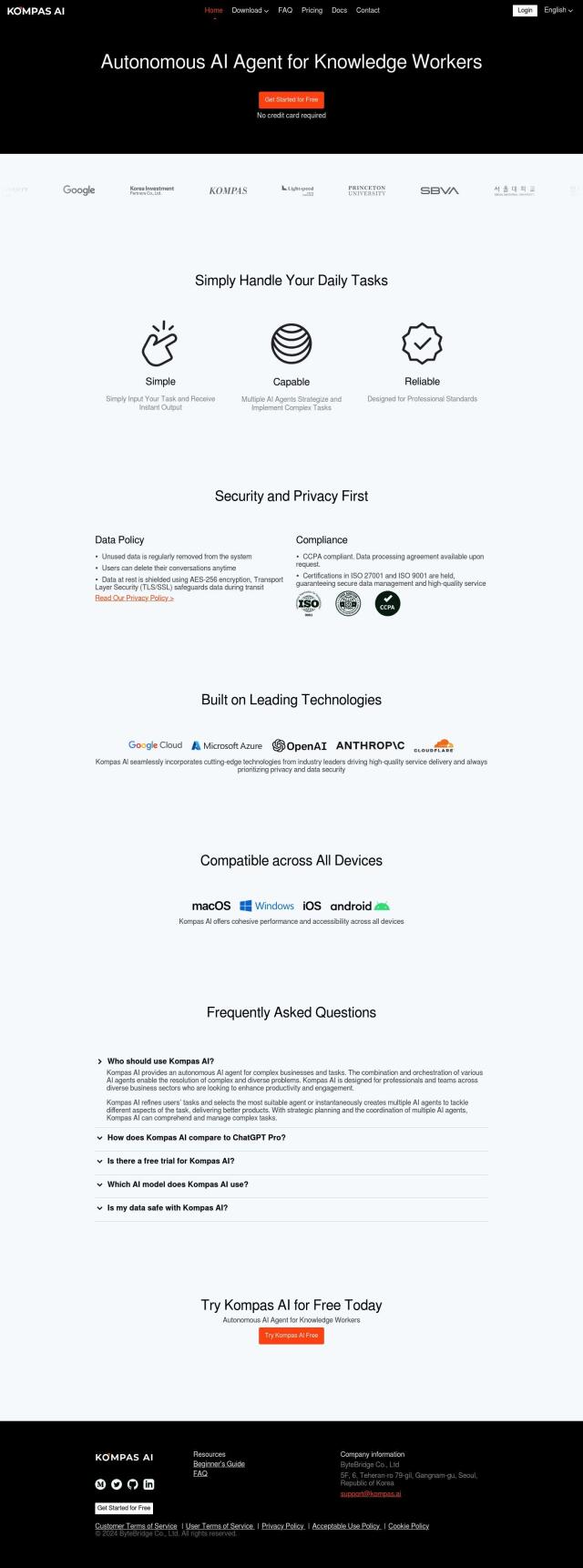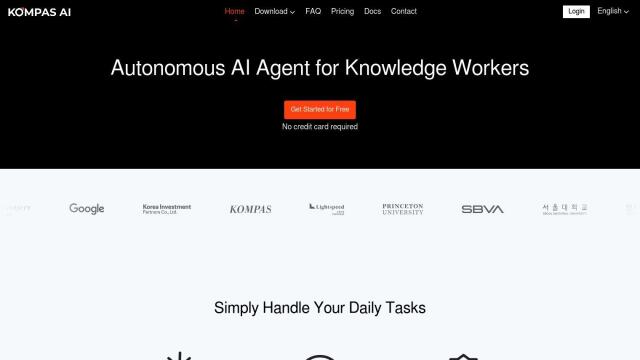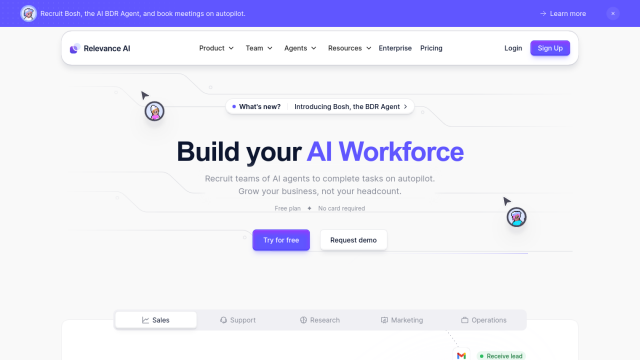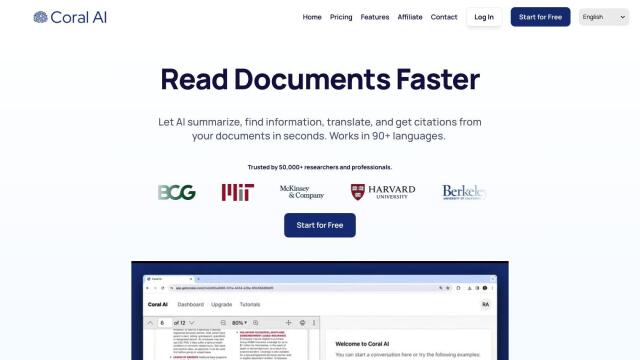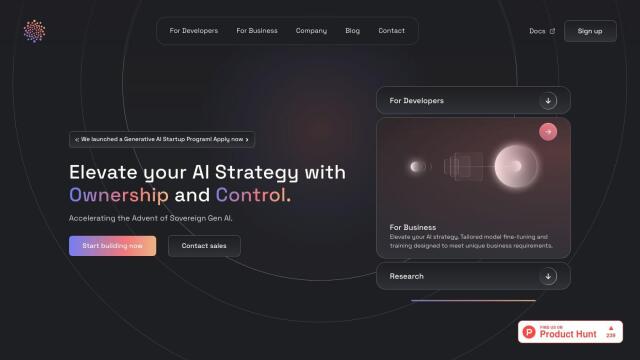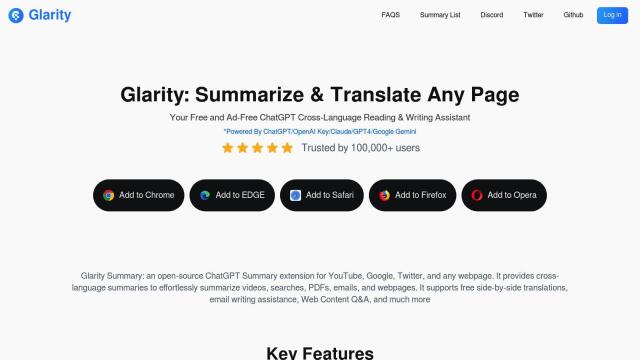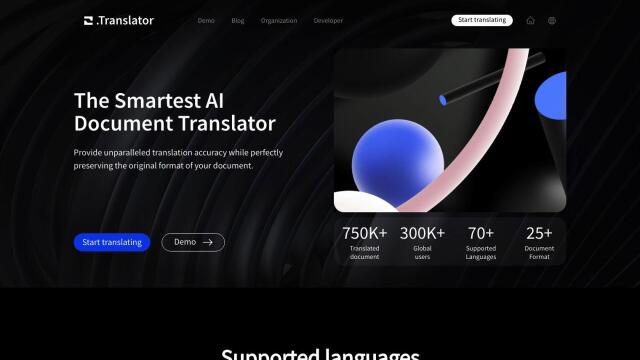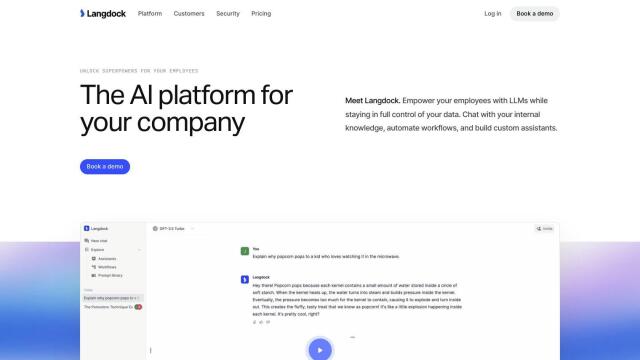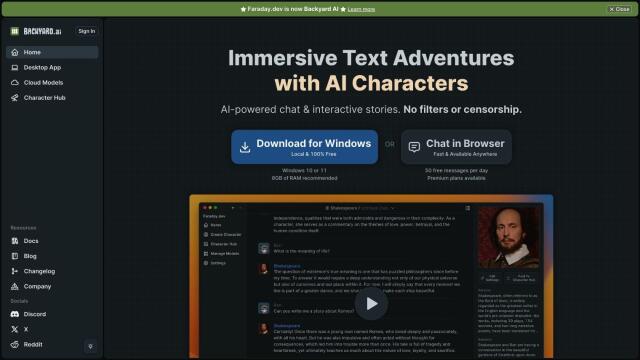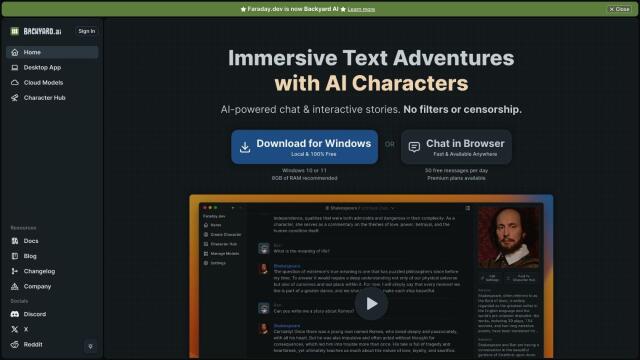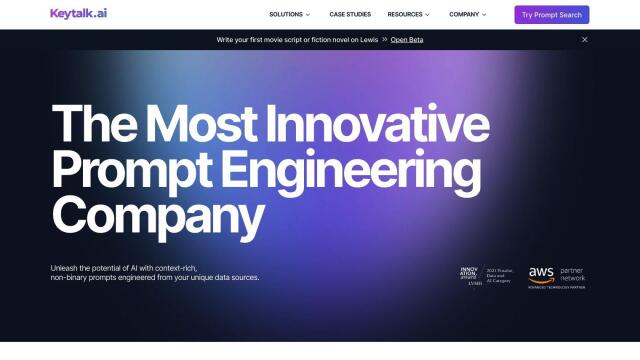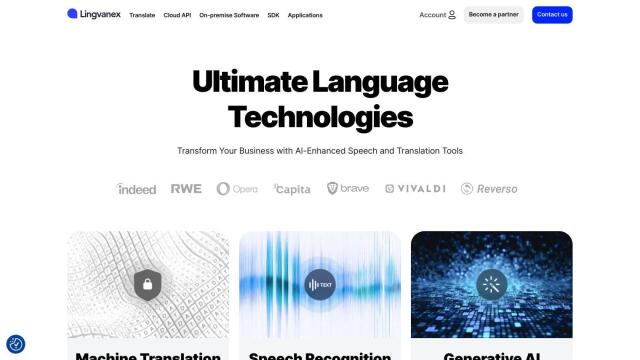
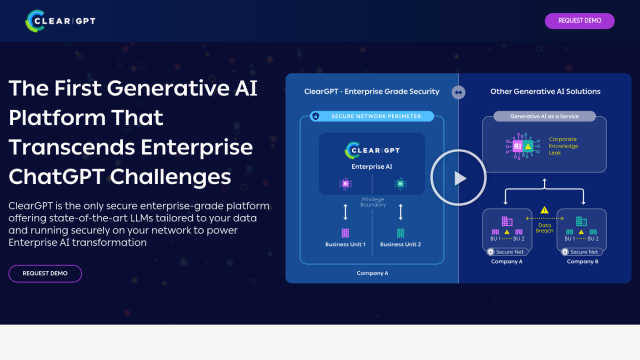
ClearGPT
If you're seeking a replacement for Stellaris AI, ClearGPT is a good candidate. This enterprise-focused, secure platform uses generative AI and Large Language Models (LLMs) to overcome security, performance and data governance challenges. It has zero data and IP leakage, role-based access controls, and continuous fresh data for training to keep AI systems up to date. ClearGPT can be easily integrated into existing applications, allowing for AI innovation across multiple business units.

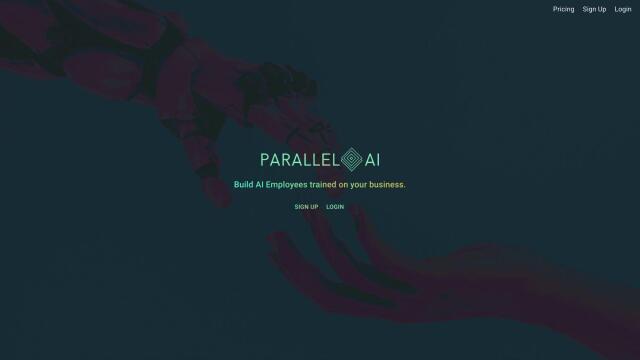
Parallel AI
Another good candidate is Parallel AI, which offers a variety of AI models including GPT4, along with features like Long-Term Memory and an AI Knowledge Base. It's got security built in with AES-256 encryption and TLS 1.2+, and it's designed to let businesses of all sizes automate workflows and employ 24/7 virtual experts. Parallel AI has flexible pricing, and it can help you build a smarter work environment by automating complex tasks and increasing productivity.


Abacus.AI
Abacus.AI is another good option as a platform for building and running applied AI agents and systems at scale. It's got ChatLLM, AI Agents and a range of predictive and analytical tools. Abacus.AI supports high availability, governance and compliance, so it's a good fit for businesses that need heavy-duty AI automation and real-time forecasting.


ThirdAI
Last is ThirdAI, which lets you use large language models and other AI technology without having to buy the hardware. It's good for document intelligence, customer experience improvement and generative AI for summarizing documents. ThirdAI has top performance on benchmark tests, and it's designed to fit into your existing workflow and infrastructure with an easy interface and flexible pricing.
